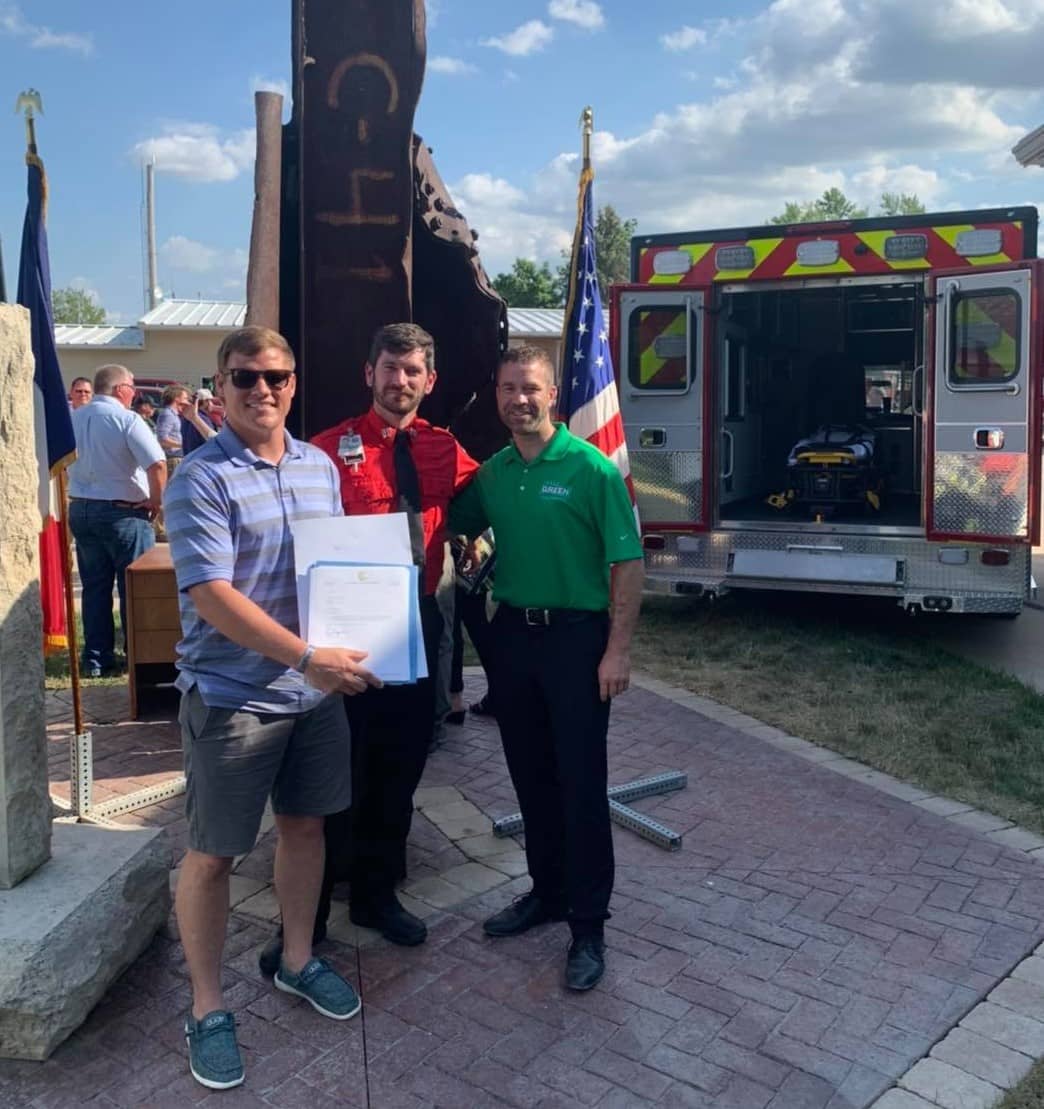
Photo courtesy of Phil Thompson at bill signing
Governor Kim Reynolds recently signed into law a bill that would allow governmental entities to declare emergency medical services an essential service.
For Iowa House District 47 Representative Phil Thompson, this new law has been on his agenda since he was first elected to the Iowa House. He pushed for EMS to be an essential service, as he lost his mother over nine years ago, and says part of the reason why his mother didn’t make it was due to the response time for the ambulance to be treated for a heart condition. Thompson shares his reaction as Governor Reynolds signed the bill into law on June 10th.
“Personally, it was just meaningful. Been in this fight for, not just as a legislator, but even as an activist, long before that, for well over nine years. It was a big deal to be able to help craft really impactful legislation. It was such a big victory for rural Iowa but for my family and myself too, it’s been a lot to get that across the finish line. I’m just really grateful for my peers, all of my friends in the House and in the Senate that helped deliver this, and of course Governor Reynolds for her support and putting it in the Condition of the State this year and making sure that we had the momentum we needed to get it done.”
Thompson explains within the new law, if cities or counties declare EMS an essential service, they can begin the process to levy taxes for those services.
“The big thing is once they declare it as an essential service, they can bring it before the voters to do a $1 per $1,000 (property valuation) levy. If they determine a council to be formed within that district and if that council determines that they need more revenue to deliver those services 24/7, they can add an additional levy up to $0.75 per $1,000.”
Thompson adds, the initial vote needs to be passed by a super-majority of 60-percent plus one, and the second vote for the additional levy would need a simple-majority of 50-percent plus one. He says the levies are set to expire every 15 years.

